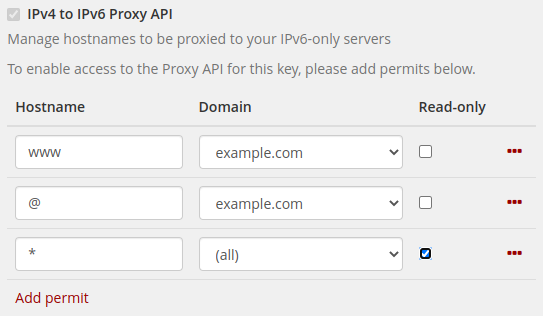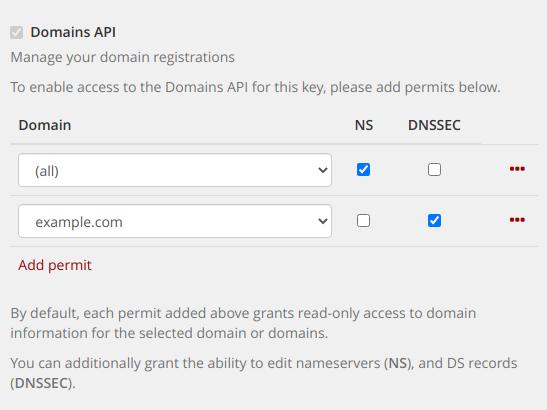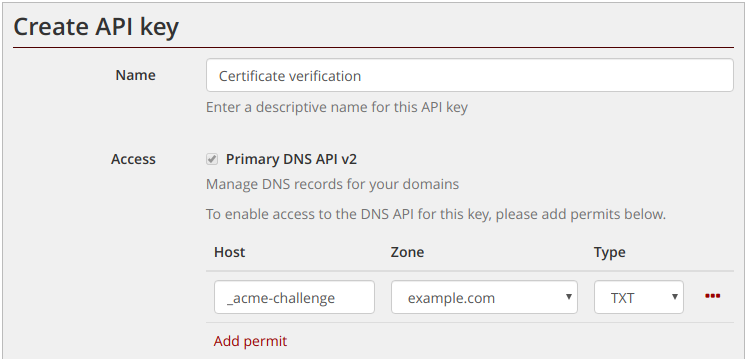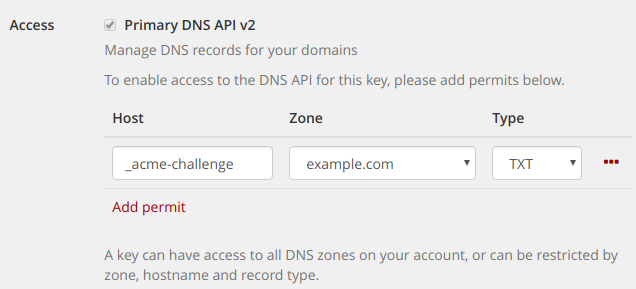IPv4 to IPv6 Proxy API
We’ve been offering IPv6-only hosting for eight years now, and have demonstrated that many websites can forego the expense of an IPv4 address pretty easily. You can read more about how we do this on this blog post from 2020. This blog post itself is being served from an IPv6-only server!
A key part of this is our IPv4-to-IPv6 proxy. This listens for incoming traffic on a shared IPv4 address and forwards it to your IPv6-only server. In order to use the proxy, you need to tell it which hostnames to listen for, and which server or servers to forward traffic to. This can be done using our control panel, and as of today, it can also be done via an API.
Having an API for proxy configuration makes it possible to automatically add or remove backend servers, allowing you to spin up additional servers, or take servers out of service for failover or maintenance.
You can also use the API to add and remove hostnames handled by the proxy, and so can be used to automate the provisioning of new services.
Fine-grained access controls
As for our DNS API and Domain API, the Proxy API provides fine-grained access control for API keys. For example, you can create an API key that only has access to a specified domain or hostname, or you can create a read-only API key if you only need to read the current configuration.
Getting started
Our IPv4-to-IPv6 proxy is available to all customers with a Mythic Beasts server, including virtual servers, Raspberry Pi servers, dedicated and colo. You can find more information on the proxy service, and the Proxy API on our support pages.



